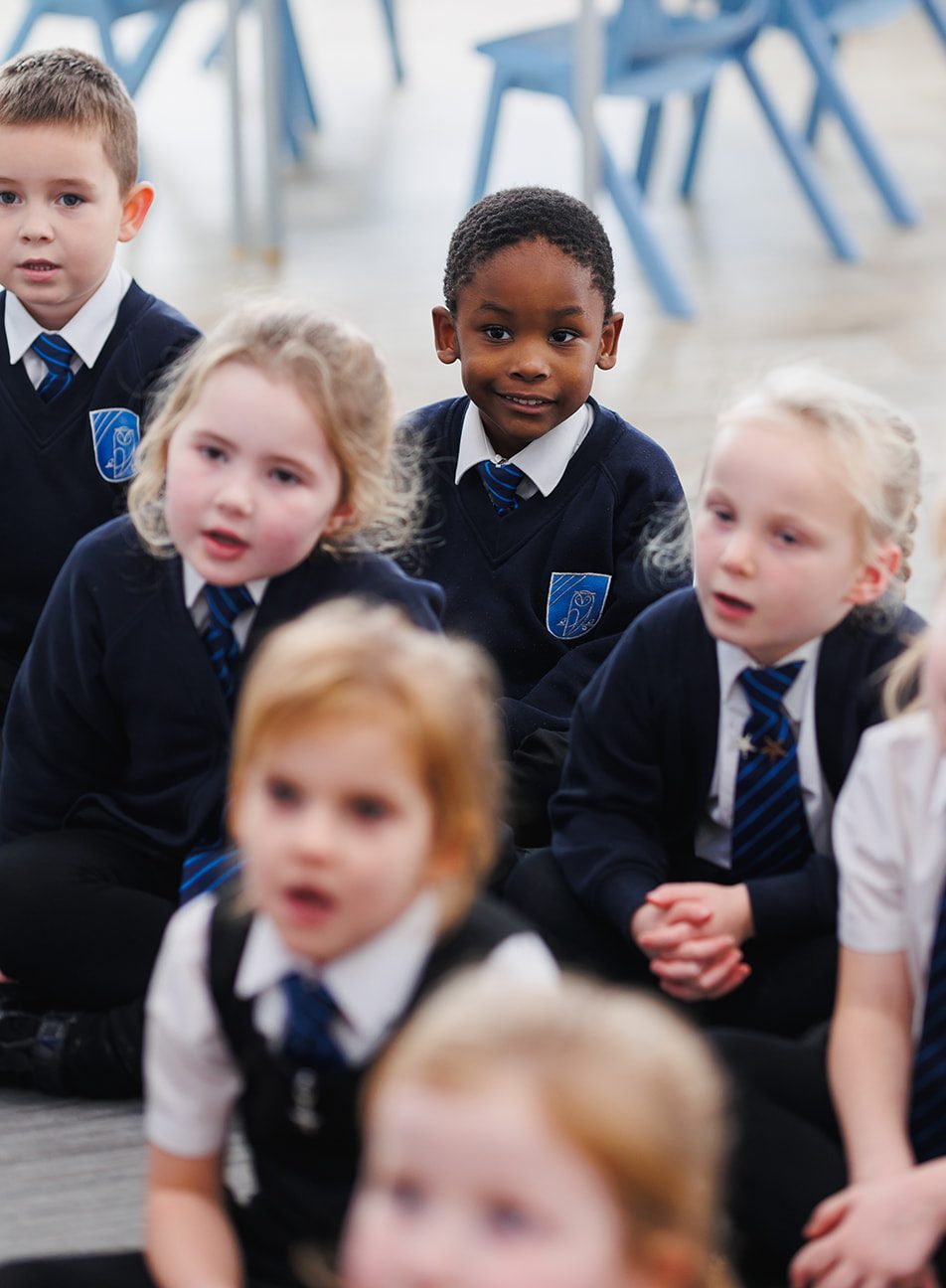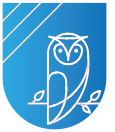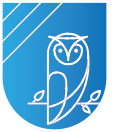
Our curriculum is planned so that pupils can apply and consolidate their computing skills within many areas of our curriculum, as well as through continuous wide-reading opportunities - which are embedded throughout other subjects. We ensure our pupils understand the importance of safe and responsible uses of technology - both inside and outside of school. This includes across a range of online platforms, including social media, apps and video games. Online safety is taught explicitly within computing sessions and wider curriculum activities.
In EYFS, pupils gain vital experience when using a range of technological equipment. They are encouraged to use this equipment in a variety of ways by investigating their uses. Pupils are exposed to current and important technology such as interactive screens and tablets.
We understand that pupils must be equipped with the essential skills and knowledge which will enable them to access the digital world. In Key Stage One, pupils learn how to use technology safely purposefully – ensuring they understand the importance of personal data such as the use of individual and unique passwords. They are made aware of their own digital footprint, allowing them to gain the skills and knowledge to use technology in a safe and respectful manner. Pupils are exposed to a range of computer programmes – developing their awareness of the digital capacity which is at their fingertips. In Key Stage Two, children are made aware of the importance of internet safety and how to stay safe on the internet – knowing what to do and which organisations they can contact when they come across inappropriate content. Children also develop their understanding of algorithms by designing, writing and debugging programs to achieve a specific outcome. Emphasis at this point in their educational journey is primarily focused on using local reasoning to debug and overcome problems.
We believe that children need to develop a secure knowledge-base in Literacy, which follows a clear pathway of progression as they advance through the primary curriculum. Our carefully sequenced, broad and balanced curriculum, underpinned by inclusive practice, aims to provide our children with the opportunity to build on their experiences in order to achieve their goals. We believe that a secure basis in literacy skills is crucial to a high-quality education across the curriculum. Across our Trust, we whole-heartedly promote high standards of literacy by equipping pupils with a strong command of the spoken and written word, and to develop their love of literature through widespread reading for pleasure, purpose and productivity. We want to ensure that our pupils fully understand the importance of all aspects of literacy to access wider opportunities across all subjects, and indeed in the future success of their lives in general.
Pupils are provided with opportunities to experience Geography first-hand and, as such, we organise regular visits and experiences to inspire pupils’ curiosity about the world and its people whilst developing their contextual knowledge and understanding of key curriculum elements. We aim to widen our pupils’ knowledge of human and physical aspects of the world, exploring diverse places and people, tackling current global geographical issues such as the detrimental impact of deforestation and reflecting on the choices we can make to live a more sustainable existence, becoming global citizens in the process.
In the Early Years, pupils begin to gain an understanding of the world around them and their place within it. They identify differences and similarities within their own immediate environment and communities, including the importance of looking after their environment - comparing their own environment to that of another to gain insight into the wider world.
In Key Stage 1, pupils deepen their understanding of their local environment and the human and physical features that influence its appearance before expanding their learning outside the local area to other parts of the UK and beyond, including continents and oceans. Within this, pupils are encouraged to ask and answer questions and are taught various geographical skills such as the use of maps, atlases and globes to support their understanding of their position within the world and direction, including the cardinal compass points.
In Key Stage 2, pupils further deepen their knowledge, skills and understanding of key geographical components, including exploring weather systems, landscapes and population densities in a variety of countries and continents. Pupils build on their mapping skills by studying the features of the world. They are immersed in increasingly complex means of demarcating the divisions of earth, including longitude and latitude, and study the location and characteristics of some of the world’s most significant human and physical features within.
We are keen to provide pupils with opportunities to experience History first hand and, as such, teachers organise regular educational visits as well as experiences in the classroom to engage and inspire pupils. We intend that pupils gain an understanding of different historical figures and eras, appreciating the diversity of societies throughout the UK and the world and the changing relationships between different groups within history. This includes their own identity, as proud products of the historical influences of Pontefract and the community as an integral part of our school life.
In the Early Years, pupils will develop their understanding of where they fit in their family and within the community. Pupils will be given opportunities to talk about significant events, family customs and explore how they differ from their friends and loved ones. Pupils will sequence simple timelines of their life, from birth until present day.
In Key Stage 1, pupils will build on their knowledge gained in the Early Years, extending their exploration of changes within living memory to learn about changes in the lifetimes of their relatives as well as about the lives and lifestyles of historically-significant figures in the recent past and about famous people and significant historical events in the more distant past, including those from British history and their impact on today’s society.
In Key Stage 2, pupils learn about people and significant events from a range of time periods in their own locality, in Britain and in other parts of the world. They will gain an in-depth understanding of the various shifts and influences in culture which have shaped modern Britain, from Roman invasion to a progressively extensive understanding of the events and costs of World War 2. The importance of ancient civilisation and human development over time is reinforced to appreciate the society we inhabit today, through study of the influence of a range of historical cultures such as the early spheres of democracy in Ancient Greece and the advancements of early Islamic civilisations. Within this, pupils are taught the skills of historical enquiry through practical activities and by considered appreciation for and evaluation of a range of genuine primary and secondary sources.
- To become fluent in the fundamentals of mathematics.
- To be able to reason mathematically
- To successfully solve problems by applying their mathematics knowledge
The aims of our Music curriculum are to develop pupils who:
- Can sing and use their voices individually and in a group
- Create and compose music on their own and with others
- Use technology appropriately when composing
- Have opportunities to learn a musical instrument
- Understand and explore how music is created, produced and communicated
- Listen to, review and evaluate the work of great composers and musicians from a range of historical periods, genres, styles and traditions
- Enjoy and have an appreciation of a range of different musical styles e.g. Classical, Jazz, Hip Hop, Pop, Rock etc.
- Make judgements about the quality of music.
We want our pupils to use the language and expression of music in their everyday interactions with others and develop young people who appreciate music in its widest cultural and contextual sense including its impact on wellbeing and mental health.
Through high quality physical education lessons, an extensive extra-curricular programme and a whole child approach, we aim to nurture confident, resilient children who will strive to do their best in any challenge they are set.
We want to aid our children in obtaining the values and skills to celebrate and respect the success of others, as well as modestly celebrating their own successes. They should be able to work both individually and as part of a team, in a positive and inclusive manner.
We strive to educate both our children and families to develop a greater understanding of how to live healthy lives and make healthy choices. We are dedicated to develop healthy minds, as well as bodies and will continue to support our children's well-being. We have strong links with local clubs and partnerships within our community to ensure that there are many opportunities for our children and families to continue their love for physical activity and sport outside of the school environment.
Our carefully designed curriculum supports all of these requirements and has children’s wellbeing at the heart of an informative and modern curriculum. It brings together PSHE Education, compulsory Relationships and Health Education, emotional literacy, mindfulness, social skills and spiritual development as well as up-to-date responses to a wide range of local crime and safeguarding concerns.
Our trust’s overarching intent for our pupils is to provide a personal, social, health and economic (PSHE) education programme of study which ensures all pupils are provided with:
- Accurate, balanced and relevant knowledge to enable them to appreciate what it means to be a positive, tolerant member of a diverse multicultural society.
- Opportunities to turn that knowledge into personal understanding and skills they can apply to real life situations.
- Opportunities to explore, clarify and if necessary, challenge, their own and others’ values, attitudes, beliefs, rights and responsibilities.
- The skills, language and strategies they need in order to live healthy, safe, fulfilling, responsible and balanced lives.
- Opportunities to develop positive personal attributes such as resilience, self-confidence, self-esteem and empathy.
- An understand of the importance of self-care, both physically and mentally.
We want our RE to support pupil’s vocabulary and develop oracy. We provide opportunities for pupils to reflect and to agree or disagree respectfully. We have a designed a sequence of learning to help them to self-regulate their emotions; thus, improving their mental health.
Our teaching follows an ambitious, programme of study accessible to all pupils in school right through from EYFS to the end of Year 6. The curriculum content for RE is structured so that it broadens and deepens pupils’ understanding and knowledge of the world’s religions and their wider connotations for society over time. This is also across and between year groups and key stages.
Parents and carers have the rights to withdraw their child from all or part of RE, should you wish. Please contact your child's schoolteacher to discuss further.
Phonics and Reading Scheme
Phonics
“If pupils cannot read, they will not be able to access the curriculum, and will be disadvantaged for life” Research for EIF framework, p20, 2019
As a core curriculum subject, English is a priority at Carleton Park. We encourage children to become resilient readers and confident communicators and reading is prioritised to enable all children to access the curriculum.
Our consistent and rigorous approach to teaching early reading, enables children to master the key skills that research suggests is important early on.
To do this, we follow the Read Write Inc. programme which sets out a sequence of lessons to teach children to read accurately and fluently, with good comprehension. They also learn to form each letter, spell correctly and compose their ideas step-by-step.
Reading
Children will:
- Learn 44 sounds and the corresponding letter/letter groups using simple prompts.
- Learn to read words using sound blending (Fred talk) e.g. c-a-t = cat, sh-o-p = shop.
- Read ‘red words’ these are words that have less common spelling patterns.
- Read lively stories featuring words they have learnt to sound out.
- Show that they comprehend the stories by answering 'Find It' and 'Prove It'.
Writing
Children will:
- Learn to write the letter/letter groups which represent the 44 sounds.
- Learn to write words by saying the sounds and graphemes (Fred fingers).
- Learn to write simple then more complex sentences.
- Compose stories based on story strips.
- Compose a range of texts using discussion prompts.
Talking
Children will learn how to:
- Answer questions
- Practise every activity orally.
- Take turns talking and listening to each other.
- Give positive praise to each other.
Home Reading
While a child is learning to read, they will be given the storybook that they have read in class so that they can practise re-reading it at home. This is done to help them build their confidence and fluency.
They will also be given a ‘book bag book’ which will be an exciting text that they will be able to read themselves; this is because they will have learnt all the letters and ‘red words’ already in class but parents or carers can offer some help if the child needs it.
It is really important that parents or carers listen to the child read at least three times a week.
Finally, a child will be given a library book; this book is for the parent or carer to read to the child and it is crucial at helping the child expand their vocabulary and develop their love for reading.
Resources for Parents
The government strongly recommend the use of synthetic phonics when teaching early literacy skills to children. Synthetic phonics is simply the ability to convert a letter or letter group into sounds that are then blended together into a word.
Even at primary school, homework is an important part of your child's education. Please help your child by:
- Talking to them about their learning. Research shows that parents and carers who take an active interest in their child's learning help them to make more progress than other children.
- Reading with them and encouraging reading alone for at least 20 minutes a day.
- Practising times tables or other number facts.
- Testing your child on their weekly spellings.
- Working with your child on their optional termly homework projects.
Further Information
The curriculum is designed to be accessible for students with Special Educational Needs and disabilities, in accordance with the Equality Act 2010 and the Special Educational Needs and Disability Regulations 2014. Our SEND report can be found here.
If any parents or other members of the public would like to find out more about the curriculum our school is following, please contact the school at admin@carletonpark.patrust.org.uk
Please click on the links below for information about our EYFS curriculum and the Primary National Curriculum



